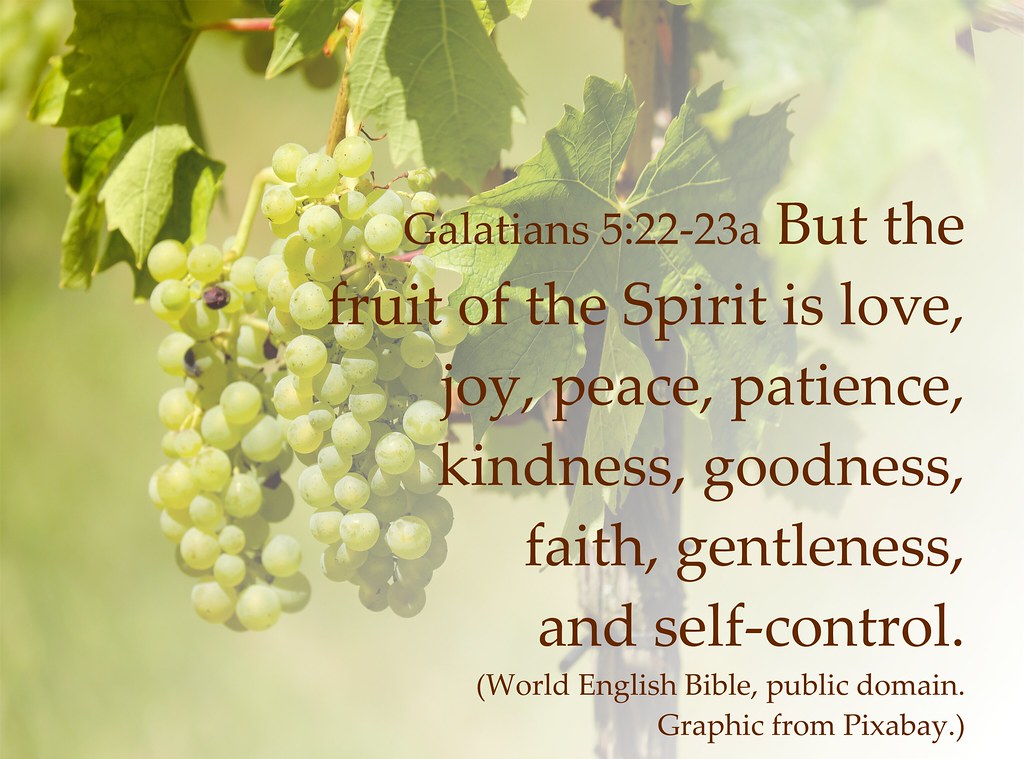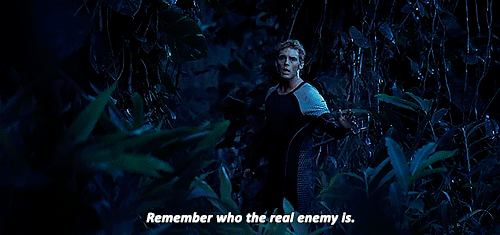Finally, be strong in the Lord and in the strength of his power. Put on the whole armor of God, so that you may be able to stand against the wiles of the devil. For our struggle is not against enemies of blood and flesh, but against the rulers, against the authorities, against the cosmic powers of this present darkness, against the spiritual forces of evil in the heavenly places. (Ephesians 6:10-12 NRSVA)
Back in Part 4 we discussed how fear can gradually wear us down. By maintaining a continuous level of inner turmoil, we become less effective at anything useful. Some of this mental stress comes from what we actually see and hear. Have you noticed though that sometimes what bothered you hours, days, or weeks ago still has some hold over you?
Now some folks are better at letting things roll off their backs than others, of course. I have improved at this over the years, but it’s still a struggle. But I am not talking about merely having a good attitude here or learning to relax. I am talking about nagging thoughts that linger to the point where someone can be sitting still with no apparent external stimuli and be teetering on the edge of a panic attack or a rage storm.
So, what’s going on there? A psychiatrist might look at such a person, diagnose some sort of disorder, and throw a pill at it. I can personally testify that pills do help somewhat. However, like any pill, they treat the symptoms rather than solving the problem. While I do appreciate being able to face my struggles with a rational sense of calm, the struggle remains.
What is the real struggle?
It’s not about comfort or safety or a sense of belonging. It’s not about politics or world affairs or getting the last word in on social media.
We all have a common enemy, folks. His name is Satan, which means “adversary.” He is not some made-up cartoon figure with horns and a pitchfork to scare little children. He is real; he doesn’t sleep, and his primary goal is your destruction and mine.
The devil begins his attack with fear, attempting to paralyze you into submission. If he finds that he can not make you afraid of something or someone, then he will use deception. He will try to stir up your basest emotions with things that just aren’t true. If you won’t buy an outright lie, then he will work on you with subtle half-truths. But if you are on your guard against such nonsense, then he will move on from deception to distraction. If he can’t win you over, he can at least keep you from doing good.
So why is the devil so effective at carrying out his schemes?
Because most of us are unaware that he is even there. And that’s just how he likes it.
The reality of spiritual warfare
If you are on one train of thought, and something else intrudes on that thought unexpectedly, that is not the random firing of a synapse. That thought that just popped into your head didn’t just pop into your head. It was PLACED there.
This doesn’t mean you can’t think for yourself. That’s what you were doing after all before your thought process was interrupted. But what will you do NEXT with this new thought? To answer that, you need to know who introduced it.
When Christians talk about receiving a message from God, it is almost never an audible voice. If it is, many times that is a sign of something else going on that is more mental than spiritual (cue the psychiatrists).
More often, you will hear people use phrases such as “prompted by” or “led by the Spirit.” Sometimes this is in direct answer to prayer; sometimes it’s seemingly out of nowhere.
In whatever manner it happens, you can always tell that the message is from God if it is in line with scripture, illuminates the solution to a problem and leads to a good result for all concerned.
Here’s where things get sticky. Sometimes you might have a thought that solves YOUR problem but creates one for someone else. Sometimes acting on that thought leads to a result that works in YOUR favor, at least for the short term, but has far-reaching consequences that you don’t even notice. And of course, if you don’t know Scripture, then you have no way of telling if the message you are receiving is in line with God’s will as revealed in His Word.
Even worse, if you’re not aware that this spiritual influence is even happening, you might think that the idea was your own idea in the first place. After all, no one spoke it to you aloud. But remember, you didn’t think it up yourself if you were actively thinking of something else when this new thought “occurred to you.” Satan’s easiest targets are the people who don’t believe in him. He has the easiest time influencing people who have no idea that they’re being influenced.
However, now that you have read this, you are aware and can no longer claim ignorance.

The Armor of God
Therefore, put on the complete armor of God, so that you will be able to [successfully] resist and stand your ground in the evil day [of danger], and having done everything [that the crisis demands], to stand firm [in your place, fully prepared, immovable, victorious]. Ephesians 6:13 AMP
First and foremost, remember that the devil is a created being. Though he would much like to tell you that he is equal with God, or even superior to Him, he isn’t.
Nevertheless, being spirit, he is more powerful than we are in our flesh by ourselves. This is why we need to put on the armor of God and call on the power of the Lord to defend us.
In Ephesians 6:14-17, Paul uses the imagery of a Roman soldier by telling us to “put on the full armor of God,” meaning that we need to make use of every resource that God makes available to us to win this struggle. These are the examples that he lists:
- The Belt of Truth. Acknowledge Truth, recognize it for what it is, give credit to the Source of Truth, and never stop seeking it.
- The Breastplate of Righteousness. True righteousness is a right standing with God that is given by His grace, not earned through our efforts. Knowledge of this righteousness that is imputed to us helps us to do the right thing and to keep our word, among other things.
- Feet fitted with the Gospel of Peace. A good pair of running shoes provides you with stability and speed. So it is with the Gospel. It is the foundation upon which you stand to face the enemy, and the Good News you take out into the world to foil his plans.
- Shield of Faith. Faith is more than just belief. Even Satan believes in God; he has seen Him face to face! It is only when you firmly rely on God and His strength that you can deflect the devil’s attacks.
- Helmet of Salvation. It’s your head the devil tries to get into. Cover it with the knowledge that God has already accepted you and has no intention of giving you back.
- Sword of the Spirit. This is referring to scripture itself. Hebrews 4:12 says: “For the word of God is living and active. Sharper than any double-edged sword, it penetrates even to dividing soul and spirit, joints and marrow; it judges the thoughts and attitudes of the heart.”This is the double-edged sword that Revelation depicts coming from the mouth of Jesus at the Second Coming, when Satan is defeated forever. Guess what? You have access to that very same Word. It is the most powerful offensive weapon you have in fighting against the devil.
With all the pieces of the armor of God in place, now you’re ready to pray like you mean it. That is what vanquishes Satan. A person who prays while knowing the One being prayed to, knowing that He’s listening and most of all, knowing that He will honor that prayer with His protection—such a person is unstoppable in spiritual warfare.
So, what is it that actually goes on in the spiritual realm when we pray? Hard to say, as most of us can’t see it. Some people do have that gift, but I am not one of them.
Author Frank Peretti burst onto the Christian Fiction scene in 1986 with his book This Present Darkness, which vividly addressed this very issue. In the book, angels are constantly engaged in battles with demons over the souls of people. Prayer is like a caffeine rush to the angels. When people put on the armor of God and pray, the angels drive back the demons. But when prayer falters, the demons have the upper hand.
Now I don’t know if that’s really how it goes down (many theologians argue that it isn’t), but it’s a neat picture and a highly entertaining read as well.
The important thing to remember is, like the soldier, we must always be on our guard. Satan and his minions do not sleep. Ever. They’ll keep coming back, no matter how many times you pray them away. This doesn’t mean your prayers aren’t effective or that God isn’t listening. This is just what demons do. It’s their nature.
(For some final words of encouragement, come back for Part 6. Make sure to fill in your contact information below to be notified when it goes live.)









